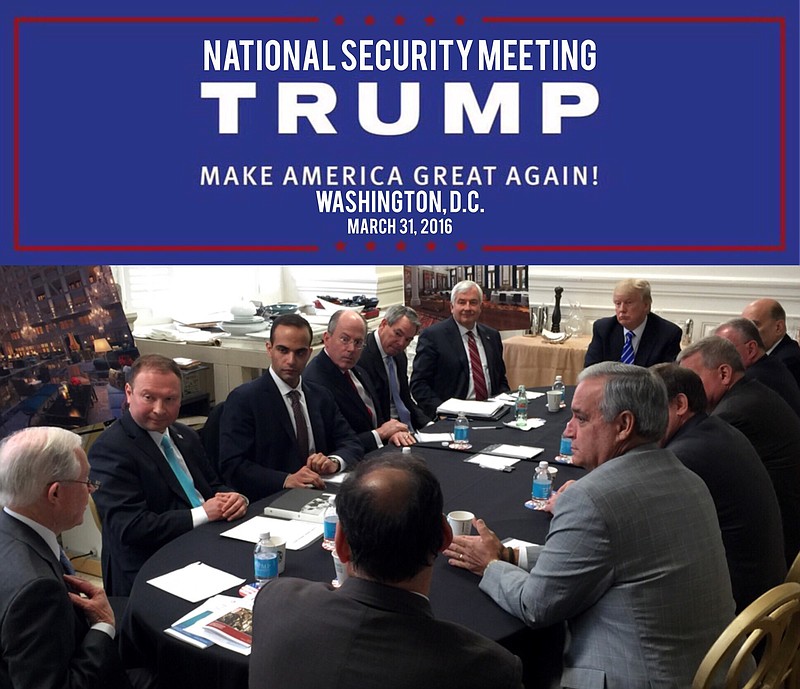Why the rushed tax plan?
Do you know the real reason Republican leaders want to rush through the tax bill?
Because they already know it is unpopular and likely to become more so.
Many polls, including a new one from ABC and The Washington Post, show that Americans are not fooled by politicians selling it as tax "cuts" when it is really - for most - a tax increase.
The New York Times, making preliminary calculations using the open-source economic modeling software TaxBrain, found the GOP's proposed tax code changes would actually raise taxes on nearly 13 million tax filers who earn $100,000 a year or less.
Times columnist David Leonhardt writes: "[The plan] places the highest priority on huge tax cuts for the very wealthy. They get lower rates and get to keep cherished tax breaks, like the "carried interest" loophole. Herbert Hoover's Republican Party wanted to put a chicken in every pot. Donald Trump's wants to put a yacht at every private dock."
Americans get it. Six in 10 say the proposals on cutting taxes favor the rich. Only a third of us support Trump's tax plan, while 50 percent of us oppose it. Polls also find that 57 percent of Americans are skeptical of the idea that corporate tax cuts would create jobs, and a majority wants taxes on the rich and on big companies to rise.
Of course, there's little chance of that happening in this Congress.
After all, a majority of Congress members are millionaires themselves.
The Center for Responsive Politics analyzed the personal financial disclosure data from 2012 of the 534 current members of Congress. The finding? For the first time, more than half - 268, up from 257 the year earlier - had an average net worth of $1 million or more.
Make them more afraid of you (and of your future votes for them), than of Donald Trump, Paul Ryan and Mitch McConnell. Find their numbers at callmycongress.com.
The Congress/lobby revolving door
Speaking of out-of-work politicians, did you know that one in five former members of Congress register to lobby?
They leave Congress after losing in primaries, running for governor or resigning in disgrace. And then they go to work trying to influence their former colleagues, according to LegiStorm.com's revolving door records.
In the 111th Congress, from 2009-2010, LegiStorm research found that about 20 percent of members who left, or 27, have since served as registered lobbyists. In the 112th Congress it was 22, also about 20 percent.
Outgoing senators must comply with a two-year "cooling off period," while members of the House must wait one year to lobby, so it's too early to know how many members from the last Congress will lobby. Of the group departing in the 113th Congress, only one has so far passed through the revolving door.
Legistorm, a nonpartisan, for-profit company that researches, verifies and publishes information about members of Congress, says its count is conservative. It does not include people who act as advisers in the influence industry or do not lobby enough to be required to register.
Then there's Russia's influence
And speaking of playing for all sides, there's the Russia/Trump collusion probe.
USDA senior White House adviser Sam Clovis was forced last week to withdraw his nomination to become USDA's chief scientist. He has been linked to the ongoing Russia investigation.
There also is the pesky matter that the Iowa talk radio show host and political scientist has no real science or agricultural experience that would have helped him in a science-based agency that oversee animal and plant safety across the entire country. But we digress.
The real problem that sunk Clovis' nomination is the fact the indicted former Trump campaign aid George Papadopoulos, who already has pleaded guilty to lying to the FBI about his contacts with Russia to get "dirt" on Hillary Clinton, told investigators he reported those contacts to his supervisors, including Clovis. Further, Clovis in August of 2016 encouraged Papadopoulos.
"I would encourage you" and another foreign policy adviser to the campaign to "make the trip, if it is feasible," Clovis wrote. The meeting (at least Papadopoulos' proposed meeting) did not ultimately take place, according to court documents.
The plot thickens
There's more there there.
According to news reports, last week's deluge of new Russia/Trump information from congressional and federal investigators revealed two previously undisclosed instances in which Attorney General Jeff Sessions was said to be directly informed during the campaign about contacts between Russia and Trump campaign staffers Carter Page and George Papadopoulos.
Senate Minority Leader Chuck Schumer, D-N.Y., and other top Democrats claim Sessions appears, again, to have failed to disclose what he knew about these contacts and when he knew it.
At a March 2016 meeting with the campaign's foreign policy team attended by Sessions, Papadopoulos reportedly offered to use his "connections" to orchestrate a meeting between Trump and Russian President Vladimir Putin. Sessions reportedly shut the conversation down, fearing that it might "leak."
Another instance involved former campaign adviser Page, who in testimony to the House Intelligence Committee and in an interview with reporters last week divulged for the first time that he told Sessions he planned to travel to Moscow in. July 2016. He reportedly later briefed at least one campaign aide on the meeting, via email.
In October, Sessions was asked by the Senate Judiciary Committee if he'd ever overheard conversations with campaign staffers "who talked about meeting with the Russians." Sessions said he had seen nothing "that would indicate collusion with Russians to impact the campaign."
Now Schumer and other lawmakers say Sessions has some explaining to do - under oath and again in front of Congress.
